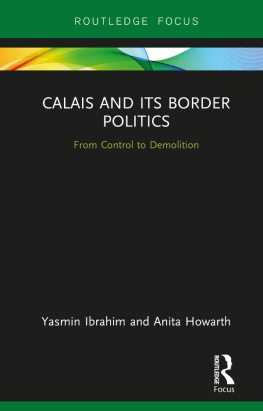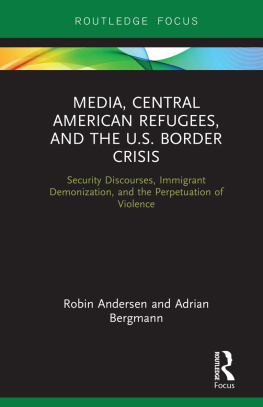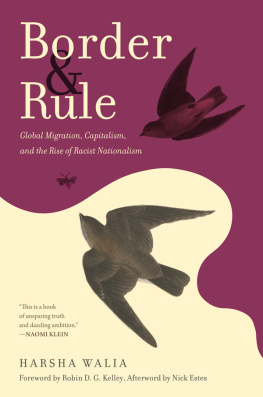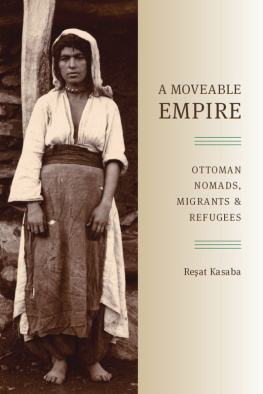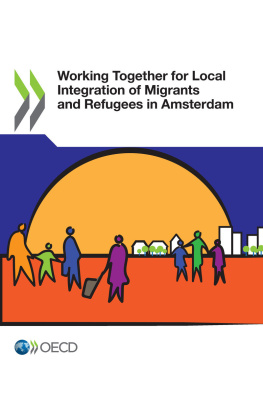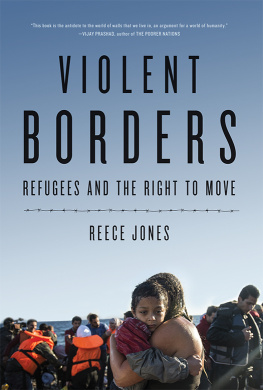Migrants and Refugees at UK Borders
This book investigates the hostile environment and politics of visceral and racial denigration which have characterized responses to refugees and migrants within the UK and Europe in recent years.
The European migrant crisis from 2015 onwards has been characterized by an extremely intimidating atmosphere which denies the basic humanity of refugees and migrants. Deep rooted in Western Enlightenment trajectory, this racially driven politics is linked to the Western theories of scientific superiority which went on to become the basis of eugenics and coloniality as part of modernity. Focusing on the migrant crisis, Brexit and the impacts of the global pandemic, this book unpicks the waves of crises and neuroses about the Other in Europe and the UK. The chapters analyse the rhetoric of camps, refrigerated death lorries, the notion of Channel crossings and accidental drownings, the formation of relationship with border architecture such as the razor wire and corporeal resistance in detention centres through hunger strike. In examining such specific sites of rhetorical articulation, policy formation, social imagination and its incumbent visuality, the chapters deconstruct the intersection of dominant ideologies, power, knowledge paradigms (including the media) as part of the public sphere and their combined re-mediation of the dispossessed humans in the shores and borders of Europe.
This important interdisciplinary volume will be of interest to researchers of migration, humanitarianism, geography, global development, sociology and communication studies.
Yasmin Ibrahim is Professor in Digital Economy and Culture at Queen Mary, University of London. Her ongoing research on new media technologies explores the cultural dimensions and social implication of the diffusion of ICTs in different contexts and its implications for humanity. She also writes extensively on race, migration, border controls, Islam and terrorism.
Routledge Research on the Global Politics of Migration
- Migration and Insecurity
- Citizenship and Social Inclusion in a Transnational Era
- Niklaus Steiner, Robert Mason, and Anna Hayes
- Migrants, Borders and Global Capitalism
- West African Labour Mobility and EU Borders
- Hannah Cross
- International Political Theory and the Refugee Problem
- Natasha Saunders
- Calais and its Border Politics
- From Control to Demolition
- Yasmin Ibrahim and Anita Howarth
- Liquid Borders
- Migration as Resistance
- Edited by Mabel Moraa
- Rethinking Migration and Return in Southeastern Europe
- Albanian Mobilities to and from Italy and Greece
- Eda Gemi and Anna Triandafyllidou
- Migration and Populism in Bulgaria
- Ildiko Otova and Evelina Staykova
- Migrants and Refugees at UK Borders
- Hostility and Unmaking the Human
- Yasmin Ibrahim
For more information about this series, please visit: www.routledge.com/Routledge-Research-on-the-Global-Politics-of-Migration/book-series/GPM
Migrants and Refugees at UK Borders
Hostility and Unmaking the Human
Yasmin Ibrahim

First published 2022
by Routledge
2 Park Square, Milton Park, Abingdon, Oxon OX14 4RN
and by Routledge
605 Third Avenue, New York, NY 10158
Routledge is an imprint of the Taylor & Francis Group, an informa business
2022 Yasmin Ibrahim
The right of Yasmin Ibrahim to be identified as author of this work has been asserted in accordance with sections 77 and 78 of the Copyright, Designs and Patents Act 1988.
All rights reserved. No part of this book may be reprinted or reproduced or utilised in any form or by any electronic, mechanical, or other means, now known or hereafter invented, including photocopying and recording, or in any information storage or retrieval system, without permission in writing from the publishers.
Trademark notice: Product or corporate names may be trademarks or registered trademarks, and are used only for identification and explanation without intent to infringe.
British Library Cataloguing-in-Publication Data
A catalogue record for this book is available from the British Library
Library of Congress Cataloging-in-Publication Data
A catalog record has been requested for this book
ISBN: 978-1-032-07183-1 (hbk)
ISBN: 978-1-032-07186-2 (pbk)
ISBN: 978-1-003-20582-1 (ebk)
DOI: 10.4324/9781003205821
Typeset in Times New Roman
by Newgen Publishing UK
To Farzhana and Nabeelah, theres hope even in hostile times.
Contents
- Preface: hostility as affective imperialism
- Borders and non-hominization: hostility and unmaking of the human
- The migrant Other: animality, monstrosity and non-hominization
- Calais at the margins of civilization: the jungle and the racialized migrant
- Migrant Channel crossings: death, drowning and invasions in boats
- Immigration incarceration and detention estates: languishing bodies, entrapment and resistance
- Razor wire and abject flesh: wounded bodies, trauma and the migrant crisis
- Children of the jungle: the child refugee and the hostile environment
- The Vietnamese box(ed) people: entombment, lorry deaths and irregular migration
- Conclusion: empire, hostility and the Other
- Index
Preface: hostility as affective imperialism
Hostility as an affective and operational architecture, conjoining the history of the empire with the criminalization and biopolitical control of mobility and alien bodies, spectacularizes borders as sites of foreign invasion. As a neurosis from an imperial and colonial past, hostility as it plays out from the border zones to the camps, to detention estates and to the Channel crossings forms the premise of this book and is explored in the selection of case studies. Borders, as sites of coloniality, work within the continuum of history and modernity as a project of exclusion in reiterating this continuity. Technology, mobility and indentured bodies in the territorialization of new exotic lands as part of Western imperialism and colonization, witnessed the movement of Western desires as an immanent aspect of affective imperialism transmuted into these spatial geographies. The movement of resources (particularly the human Other) with the agenda of opening new markets, extracting raw materials and gaining territories as accumulation through dispossession (Harvey 2001) marked the imperial era of Western colonization and establishment of sea routes. Naval control over these routes and mobility of resources and cultivation of markets underpinned these imperial and colonial projects. This colonization of sea routes over time and mobility through these
discovery expeditions to establish and rule over the empire marked the extension of territoriality and biopolitical control over savage bodies in the Global South. Racialized architectures of modern capitalism are premised on both mobility and re-coding of flesh as commodity where its fungibility is evoked within structure of gratuitous violence


